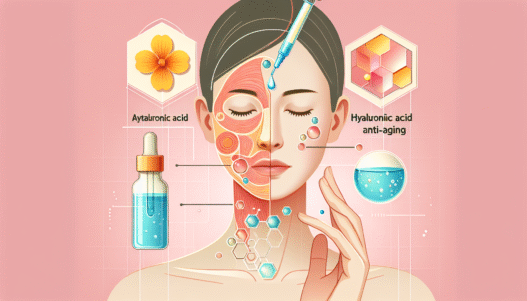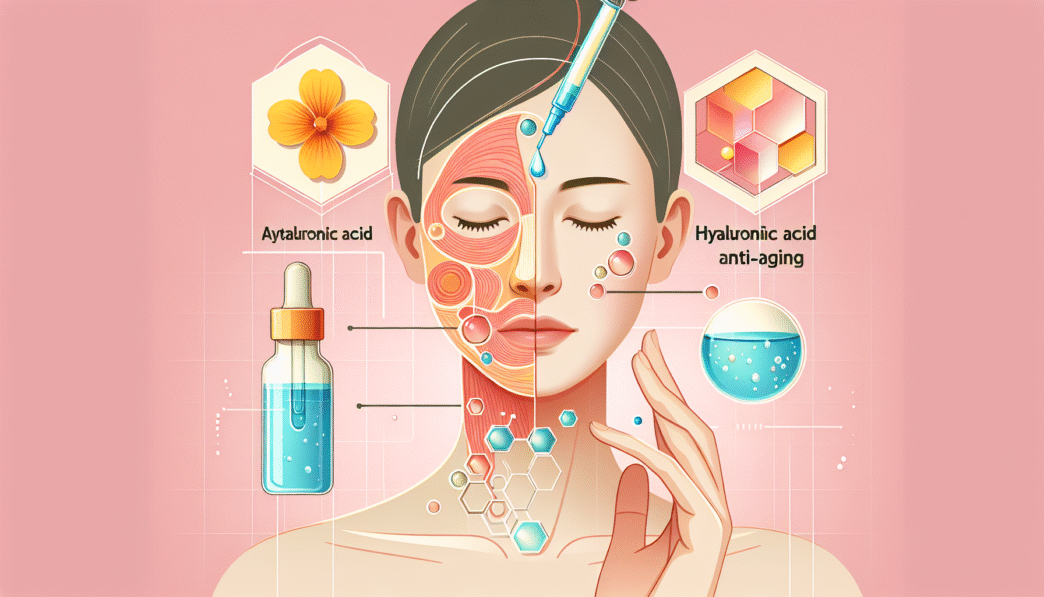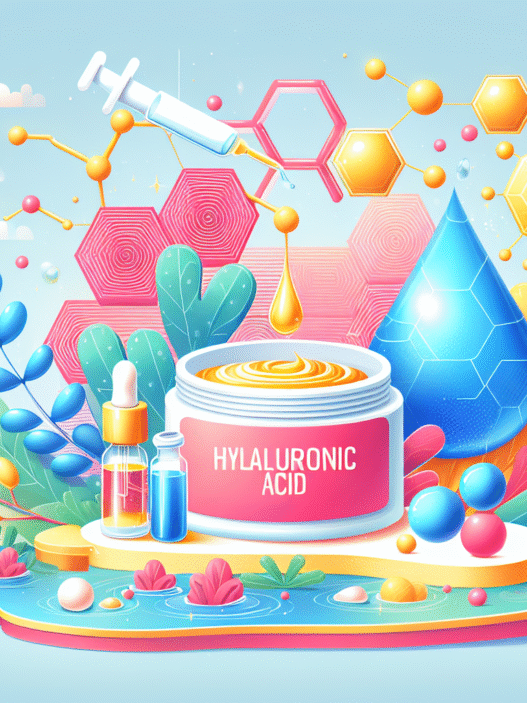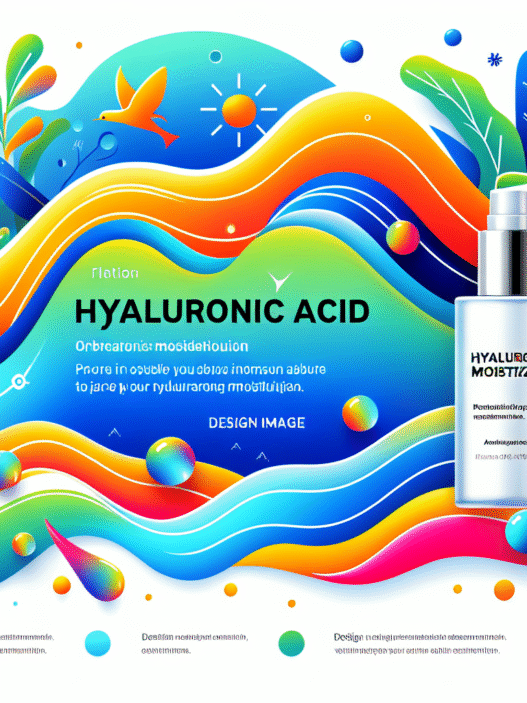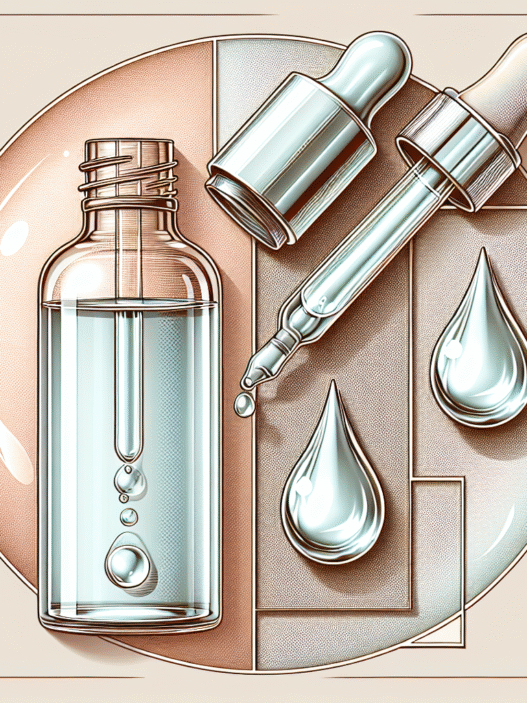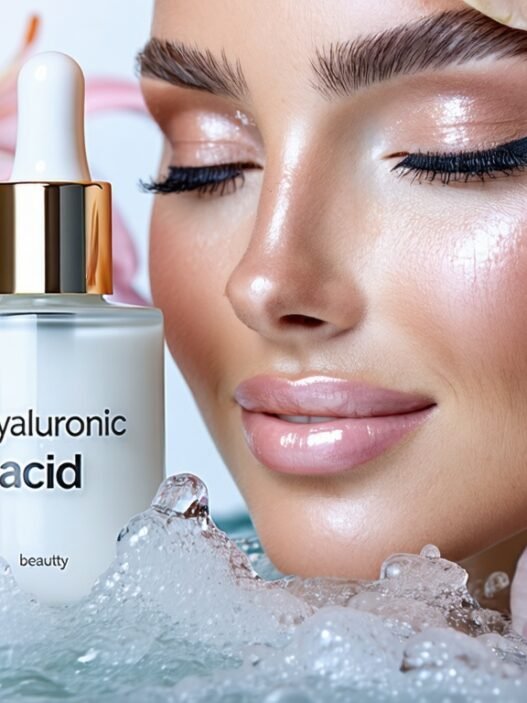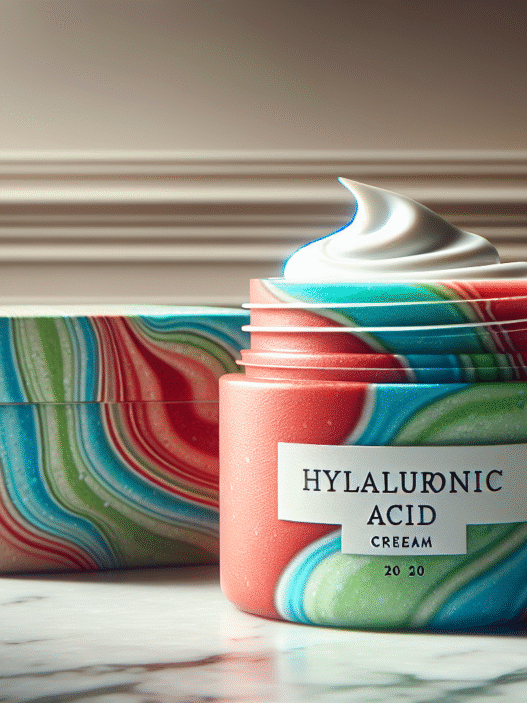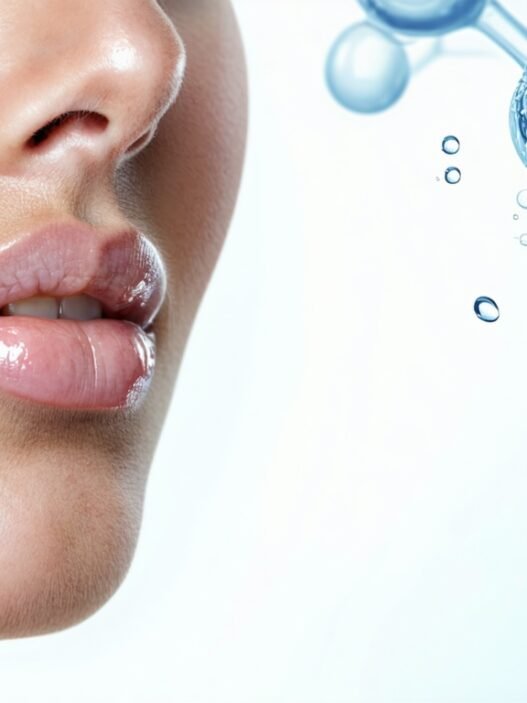Understanding Hyaluronic Acid
Hyaluronic acid (HA) plays a critical role in maintaining skin health and is revered for its anti-aging benefits. Understanding its significance and sources can help beauty enthusiasts effectively incorporate it into their skincare routines.
Importance of Hyaluronic Acid
Hyaluronic acid is a gooey, slippery substance found naturally in the body, primarily in the skin, joints, and eyes (Cleveland Clinic). Its most notable characteristic is its exceptional ability to retain moisture: it can hold about one and a half gallons of water in a quarter teaspoon. This remarkable capacity makes it a key ingredient in many moisturizing products and is vital for sustaining skin hydration and elasticity.
As skin matures, the natural levels of hyaluronic acid diminish, contributing to signs of aging such as dryness and the appearance of wrinkles. Regular application of products containing HA can help replenish skin moisture, promoting a plumper and more youthful appearance. For more information about the benefits, explore our article on hyaluronic acid benefits.
Sources of Hyaluronic Acid
Hyaluronic acid is derived from both natural sources and synthetic production.
| Source Type | Description |
|---|---|
| Natural Sources | Found in various animal and plant sources, including rooster combs and certain fungi. |
| Synthetic Sources | Produced through bio-fermentation processes, ensuring purity and safety for use in cosmetics and supplements. |
HA is commonly included in skincare products like serums, creams, and moisturizers. For targeted treatments, hyaluronic acid injections are employed to enhance skin hydration and volume (hyaluronic acid injections). For a more nourishing effect, hyaluronic acid moisturizers can infuse skin with long-lasting hydration (hyaluronic acid moisturizer).
Incorporating hyaluronic acid into one’s skincare regimen can significantly enhance skin quality, making it an essential component for those seeking effective anti-aging solutions.
Hyaluronic Acid for Skin Health
Hyaluronic acid (HA) plays a vital role in skin health, primarily through its impressive ability to retain moisture and promote elasticity. The incorporation of HA into skincare routines can lead to visible improvements in the skin’s appearance, particularly concerning hydration and wrinkle reduction.
Hydration and Elasticity
Hyaluronic acid is renowned for its remarkable moisture-retaining capabilities. An independent study conducted in 2011 revealed that applying a cream containing 0.1% hyaluronic acid twice daily resulted in approximately a 10% increase in skin hydration and a 20% boost in elasticity Typology. This increase in hydration is critical as it helps to maintain skin plumpness and firmness over time.
The molecular weight of hyaluronic acid significantly influences its effectiveness. Research indicates that hyaluronic acid with a molecular weight between 50 to 1,000 kDa is most beneficial for improving skin elasticity, with about 130 kDa being particularly effective in enhancing elasticity by 20% Healthline.
| Hyaluronic Acid Molecular Weight | Effect on Skin Elasticity |
|---|---|
| 50 kDa | Significant increase |
| 130 kDa | Most effective (20% increase) |
| Higher KDa (1,000 kDa) | Limited benefits |
Reduction of Wrinkles
Hyaluronic acid also contributes to wrinkle reduction through its hydrating properties. A 2021 study involving 40 females aged 30 to 65 showed that applying topical hyaluronic acid twice daily led to significant improvements in skin hydration and reduced signs of aging after six weeks Medical News Today. This suggests that regular use of hyaluronic acid products can have a noteworthy impact on the appearance of fine lines and wrinkles.
Another notable finding is that both low molecular weight (LMW-HA) and high molecular weight (HMW-HA) hyaluronic acid can benefit skin health. LMW-HA enhances skin moisture levels and facilitates regeneration, while HMW-HA forms a barrier that locks in moisture, helping to smooth out wrinkles MDPI.
For optimal results, skincare enthusiasts can consider incorporating products such as a hyaluronic acid serum or hyaluronic acid moisturizer into their routines to maximize hydration and minimize the appearance of fine lines. Using such products consistently can lead to rejuvenated, youthful skin. For those seeking more intensive treatment, hyaluronic acid injections can also provide significant anti-aging benefits.
Hyaluronic Acid in Skincare Products
Hyaluronic acid has become a staple ingredient in many skincare products, particularly for its anti-aging properties. Understanding the efficacy of product concentration and identifying popular formulations can help beauty enthusiasts make informed choices.
Product Concentration Efficacy
The effectiveness of hyaluronic acid in skincare products often depends on its concentration. Research indicates that applying a cream with 0.1% hyaluronic acid salts twice daily can significantly improve skin hydration (approximately +10%) and elasticity (about +20%), while also reducing wrinkle depth (approximately -10%) (Typology).
Interestingly, a product concentration of 0.1% to 0.4% can be nearly as effective as higher concentrations around 3%. This implies that the overall formulation and additional ingredients of the product can be just as important as the amount of hyaluronic acid included. Below is a table summarizing the efficacy of various concentrations:
| Concentration of Hyaluronic Acid | Skin Hydration Improvement | Skin Elasticity Improvement | Wrinkle Depth Reduction |
|---|---|---|---|
| 0.1% | +10% | +20% | -10% |
| 0.2% – 0.4% | Similar to 3% | Similar to 3% | Similar to 3% |
| 3% | Higher potential | Higher potential | Higher potential |
Popular Skincare Products
Several skincare products effectively harness the benefits of hyaluronic acid by combining different types of this molecule to enhance hydration and promote skin healing. Here are some notable examples:
| Product Name | Key Features |
|---|---|
| Hada Labo Hyaluronic Acid Lotion | Contains various hyaluronic acid molecules, designed for maximum effectiveness and hydration. |
| Hada Labo Premium Lotion | Offers multiple HA types for deep hydration and skin repair. |
| The Ordinary Hyaluronic Acid 2% + B5 | Combines several forms of hyaluronic acid to improve skin hydration and health. |
These products illustrate how incorporating diverse formulations can maximize the anti-aging and hydrating effects of hyaluronic acid. For more information about the benefits of hyaluronic acid, check out our article on hyaluronic acid benefits.
As the beauty industry evolves, understanding the role of hyaluronic acid in skincare products is crucial for achieving youthful and hydrated skin. By considering product concentration and popular offerings, individuals can effectively leverage the anti-aging properties of hyaluronic acid.
Benefits of Hyaluronic Acid
Skin Moisture and Regeneration
Hyaluronic acid is renowned for its remarkable ability to enhance skin hydration. It can bind up to 1000 times its weight in water, making it an effective humectant that keeps the skin hydrated by preventing moisture loss from its surface. This characteristic is vital for maintaining skin moisture levels and promoting a youthful appearance. By reintroducing hyaluronic acid into the skin, one can significantly reduce dryness, which is commonly associated with aging, and improve skin regeneration and elasticity.
When considering the different types of hyaluronic acid, low molecular weight hyaluronic acid (LMW-HA) has been shown to penetrate the skin more deeply and enhance moisture levels effectively. In contrast, high molecular weight hyaluronic acid (HMW-HA) primarily serves to form a protective barrier on the skin, reducing water evaporation and providing a surface-level hydrating effect (MDPI).
| Type of HA | Water Binding Capacity | Effect on Skin |
|---|---|---|
| Low Molecular Weight (LMW-HA) | Can penetrate deeply and enhance moisture levels | Enhances skin regeneration |
| High Molecular Weight (HMW-HA) | Forms a protective barrier on the skin surface | Reduces evaporation and improves hydration |
Healing Properties
Hyaluronic acid is not only effective for hydration but also beneficial for wound healing and skin regeneration. Its natural presence in the body’s connective tissues provides structure to the skin, facilitating the healing process. The application of hyaluronic acid has been found to expedite wound healing and improve the overall health of the skin.
In clinical settings, hyaluronic acid has been used in injections to enhance wound repair and tissue regeneration, further establishing its healing properties. The ability of hyaluronic acid to stimulate skin cell turnover and support cellular function makes it a valuable component in anti-aging formulations.
For more information on how hyaluronic acid can enhance skin health, you can explore additional details on hyaluronic acid for skin or dive deeper into specific products like hyaluronic acid serum that utilize these benefits.
Hyaluronic Acid and Anti-Aging
Hyaluronic acid (HA) plays a significant role in anti-aging through its impact on skin cell signaling and its anti-inflammatory properties. Understanding these functions can help beauty and skincare enthusiasts make informed decisions regarding their skincare routines.
Role in Skin Cell Signaling
Hyaluronic acid is integral to skin cell signaling, influencing various cellular functions essential for maintaining youthful skin. The anti-aging properties of HA are attributed to its involvement in stimulating keratinocyte growth, reinforcing intercellular structures, and its antioxidant properties. This essential molecule interacts with the CD44 receptor, regulating skin cell proliferation and promoting an optimal turnover rate (MDPI).
By enhancing cell signaling, HA contributes to the overall health and resilience of the skin. It also aids in the formation of new skin cells, ensuring that the skin stays vibrant and youthful. When incorporated into topical products or procedures, hyaluronic acid helps in rejuvenating and revitalizing aging skin. To learn more about HA’s benefits, check out our article on hyaluronic acid benefits.
Anti-inflammatory Effects
Hyaluronic acid also exhibits notable anti-inflammatory effects on the skin, helping to mitigate conditions that may accelerate aging. By reducing inflammation, HA supports the healing process and creates a calm environment for the skin to regenerate. This property further enhances its attractiveness as an ingredient in anti-aging formulations.
The ability of HA to bind with water and maintain hydration slows the rate of transepidermal water loss (TEWL), which is crucial for ensuring optimal skin moisture levels. Maintaining hydration is essential in preventing sagging and loss of elasticity commonly associated with aging. HA’s viscous nature contributes to forming a barrier that not only retains moisture but also protects against environmental aggressors, contributing to a smoother, healthier appearance.
For targeted treatment options, explore hyaluronic acid serum or consider hyaluronic acid injections for more immediate results. By understanding the dynamics of HA in anti-aging skincare, enthusiasts can better equip their beauty regimens to achieve youthful skin.
Choosing Hyaluronic Acid Products
When selecting the right hyaluronic acid anti-aging products, several factors must be considered to ensure optimal effectiveness. Understanding these factors can help beauty and skincare enthusiasts make informed choices for their skincare routine.
Factors to Consider
- Concentration of Hyaluronic Acid:
- Effective skincare products typically contain concentrations of hyaluronic acid ranging from 0.1% to 3%. Interestingly, a product with 0.1 to 0.4% hyaluronic acid may prove just as effective as higher concentrations due to other beneficial ingredients (Typology).
- Molecular Weight:
- The molecular weight of hyaluronic acid can impact its benefits. HA with a molecular weight between 50 to 1,000 kDa is most effective. Studies indicate that 130 kDa HA can enhance skin elasticity and improve wrinkle depth (Healthline).
- Formulation Attributes:
- Look for products that combine various types of hyaluronic acid molecules, which can offer enhanced hydration and skin healing. Ingredients like vitamin B5 can further aid in nourishment and regeneration.
- Additional Ingredients:
- Consider other components in the product. Ingredients that work synergistically with hyaluronic acid enhance overall effectiveness.
HA Formulations for Optimal Benefits
Some recommended formulations highlight the diversity in hyaluronic acid products:
| Product Name | HA Concentration | Notable Features |
|---|---|---|
| Hada Labo Hyaluronic Acid Lotion | Multiple types | Excellent hydration retention |
| Hada Labo Premium Lotion | 2% HA | Deep hydration and skin rejuvenation |
| The Ordinary’s Hyaluronic Acid 2% + B5 | 2% HA | Contains vitamin B5 for added nourishment |
These products feature different HA types to maximize hydration, benefiting both instant moisture needs and long-term skin repair.
When evaluating a moisturizer, serum, or cream, be mindful of the formulation and its concentration of hyaluronic acid. Tailoring these products to meet individual skincare needs can significantly enhance results in achieving youthful, hydrated skin. For more detailed insights regarding hyaluronic acid benefits, visit our page on hyaluronic acid benefits.










